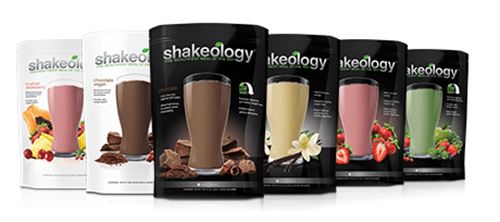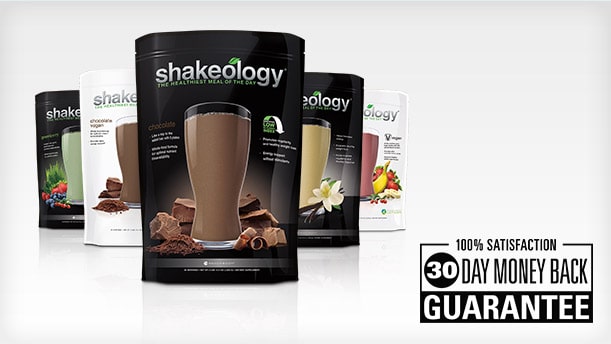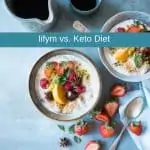Meal replacements have had a long and rich history. Beginning in the eighteenth century with a meat and fruit mix for explorers in harsh environments, they have continued to grow in popularity throughout the 20th and 21st century. In recent years, as environmental consciousness and animal welfare awareness continues to rise, vegan meal replacement products are now trending.
However, choosing the best vegan meal replacement product for your needs is no easy task. Unlike regular supplements, these products may actually replace a significant amount of your daily caloric needs. Hence, choosing a product that is not right for you can have far more serious consequences than choosing a less than ideal brand of pre-workout supplements.
In this detailed review, we will be analyzing and comparing two popular vegan meal replacement shakes: Plantfusion Phood and Shakeology. We will breakdown their macro and micro components and determine whether they will be able to provide you with a complete and nutritionally balanced meal replacement.
Topic Contents
PlantFusion Phood Review
PlantFusion Phood is part of the PlantFusion brand, which falls under the Reliance Private Label Supplements Company. The founders of the company each grew up in family owned health food stores created Reliance.
The company allows retailers and other companies to provide premium private label products under their own respective brands. It was founded in 1978 and focuses on the natural products niche.
Objective
PlantFusion Phood aims to provide a 100% plant-based complete nutritional support in one easy package. The idea is an ‘all in one’ meal replacement that not only gives the proper macronutrients but also micronutrients; a supplement that can theoretically replace all other supplements.
Basic Information
| Serving Size | 45g |
| Calories | 200 |
| Total Fat | 7g (1g Saturated Fat) |
| Total Carbohydrate | 17g (6g Dietary Fiber) |
| Total Protein | 18g |
| Sugars | Less than 1g |
| Cholesterol | 0mg |
One thing to note here is that at 200 calories per serving, PlantFusion Phood is not a very calorie heavy meal replacement shake. In fact, considering the average daily caloric requirement of 2,000 calories, Plantfusion Phood would be better served as an ‘occasional meal replacement’ rather than something to replace any significant amount of your daily caloric requirements.
Macronutrient Profile
Each serving of Plantfusion Phood has Protein/Carbohydrates/Fat ratio of about 35/33/31. This is fairly nutritionally balanced between the three macronutrients with a slight bias toward protein. It is also worth noting that the balance is higher toward fat compared to carbs. A typical daily recommended macronutrient breakdown would be 40/40/20.
Protein Sources
The protein in Plantfusion Phood is completely vegan in source and comes from a combination of pea, artichoke, organic sprouted amaranth, organic sprouted quinoa, and algalin. Pea protein is a very common vegan protein source, and some research has shown equivalent muscle gains as subjects supplementing with whey protein.
While it is considered a complete protein, pea protein is lacking in one vital amino acid – methionine. However methionine is abundant in oats, which Plantfusion Phood also contains as part of its carbohydrate source.
Artichokes and amaranth also contain some protein, while quinoa is well known as another high quality source of vegan protein (although it is more often consumed directly as a food). Algalin, which is a chemical derived from brown seaweeds, contains 50% protein along with fiber and healthy fats.
Further, Plantfusion Phood notes that in addition to the different sources of protein, it also adds in its own amino acid blend of leucine, isoleucine, valine, glutamine, and lysine. This was most probably to ensure a complete amino acid profile and perhaps to add in more leucine, which is considered to be the main muscle building amino acid.
While the company did not disclose the percentage of protein provided by each source, we are fairly confident that the protein provided through Plantfusion Phood has a complete amino acid profile.
Carbohydrate Sources
The carbohydrates in Plantfusion Phood come from a combination of six different grains: oat bran, amaranth, quinoa, buckwheat, millet, and chia, which it calls its ‘ModCarb’ plus baobab fruit. Obviously, some of these carbohydrate sources double up as protein sources as well.
Plantfusion Phood claims that ModCarb is a complex carbohydrate blend, so we have decided to take a look at the Glycemic Index and the Glycemic Load of the six grains below. Glycemic Index measures how quickly a food makes glucose enter your bloodstream, while Glycemic Load measures how much glucose will enter your bloodstream.
A Glycemic Index value of below 55 is considered low, 56 – 69 moderate, and anything above 70 is high. Glycemic Load values of under 10 are low, 10 – 20 moderate, anything above 20 high.
| Ingredient | Glycemic Index | Glycemic Load |
| Oat Bran | 50 | 3 |
| Amaranth | 107 | 21 |
| Quinoa | 53 | 13 |
| Buckwheat | 49 | 13 |
| Millet | 71 | 23 |
| Chia | Very Low | Very Low |
As you can see, most of the grains used, with the exception of millet and amaranth have low glycemic load and index values. Very few know that amaranth and millet are actually extremely glycemic, but based on the overall composition, the carbohydrates in Plantfusion Phood likely have an overall moderate glycemic load and index. Again, as the company does not release the specific compositions, this is just an educated guess.
Despite being highly glycemic, amaranth and millet have some unique benefits. Amaranth is high in protein and a potent source of vitamins and minerals, especially calcium, iron, and vitamin C. Millet also has significant amounts of proteins (though lacking in essential amino acids) and is high in B-Vitamins, which are essential for helping our body convert food into fuel.
Baobab fruit is a relatively new ‘superfood’. This is because of its high content of polyphenols, which are beneficial for reducing the body’s glycemic response. This means that the addition of this fruit into the product will lower the overall glycemic response your body will have after consumption.
Overall, Plantfusion Phood will give you a good source of quality carbohydrates sourced from grains and seeds. The glycemic impact will be moderate, and those watching their blood sugar levels should have no reason to worry. With 6g of dietary fiber out of 17g of total carbohydrates, a very high percentage, you will also get the necessary daily fiber content from Plantfusion Phood.
Fat Sources
Plantfusion Phood contains 4.4g of Omega 3, 6, and 9 fatty acids sourced from algalin, flax, and sunflower. The remaining 2.6g of fat likely comes from the other ingredients mentioned above that also provide the carbohydrates and protein.
Again, Plantfusion Phood does not provide us with the breakdown of specific fatty acids, which is unfortunate, however based on the sources. While flax and sunflower are good sources of alpha-linoleic acid (“ALA”) it does not provide EPA and DHA, commonly found in fish oil. Fortunately, algalin has substantial amounts of EPA and DHA.
However, as the breakdown is not provided, we are unable to determine whether Plantfusion Phood contains sufficient EPA and DHA to really provide complete nutritional support from a fatty acids perspective.
Micronutrient Profile
In addition to the micronutrients provided by the ingredients already discussed above, Plantfusion Phood has an additional 400mg of a vitamins and mineral complex. This complex is a blend of guava, lemon, sesbania, amla, basil, annatto, broccoli, watercress, kale, mustard, and cabbage.
Looking at its overall micronutrient profile, Plantfusion Phood has very high Vitamin B content with some B vitamin variants far exceeding the daily requirements. Its Vitamin C, D, and E content is also substantial. However it is lacking in Vitamin A, calcium, magnesium, zinc, and iron.
As such, Plantfusion Phood’s micronutrient profile, while decent, is very heavily slanted toward Vitamin B. We recommend that you still take a more complete multivitamin supplement even if you are taking this product.
Other Ingredients
Plantfusion Phood has also opted to add in probiotics and digestive enzymes into the mix. However, it only contains one strain which is bacillus coagulans, also known as lactobacillus sporogenes. This strain may help with irritable bowel syndrome and constipation. It may even help with muscle recovery and reduce cholesterol levels.
Plantfusion Phood has 1 billion CFUs of probiotics per serving, which is not very much. In fact it’s just the bare minimum. That said, some probiotics is better than nothing and it’s still a net positive.
Each serving also contains less than 100mg of two enzymes: bromelain and alpha galactosidase. Bromelain, more commonly known as pineapple extract, has been shown to reduce inflammation and help with nasal congestion.
Alpha galactosidase is a digestive enzyme which aids in breaking down complex carbohydrates; very helpful considering the carbohydrate makeup of Plantfusion Phood. It also helps reduce intestinal gas production aka flatulence after consuming a carbohydrate heavy meal.
Taste and Mixability
Plantfusion Phood is available in two flavors: Vanilla and Chocolate Caramel. In addition to cocoa and other natural flavors, the taste is enhanced through stevia and erythritol. If you’ve never heard of erythritol, it is a natural low calorie sugar that has a glycemic index of zero (meaning it has no effect on blood sugar levels).
As a smaller molecule in which 90% is excreted through urine, it is said to cause less digestive upset compared to other artificial sweeteners. Further, it has also been proven not to cause tooth decay. So there’s nothing to worry about.
When it comes to taste, it’s definitely subjective. However if you are not used to the taste of vegan powders, such as vegan protein powders, you will probably find the taste of Plantfusion Phood not very palatable.
Online consensus is very mixed on its flavor, so the best suggestion is to mix your Plantfusion Phood into a smoothie. For that purpose, the Vanilla flavor would be a better choice as it would mix better with other flavors.
Mixing wise, Plantfusion Phood is perfectly fine, however you should know that it does have a somewhat grainy and chalky texture.
Value for Money
Based on prices listed on Plantfusion’s official website and Amazon, here are the per-serving costs of Plantfusion Phood depending on which size you order. Normally we would only include prices on from the official website for this metric. But in this case the price between Amazon and the official website was so different that we would be doing you a disservice if we did not list both prices.
Note that on Amazon, the product is being offered by the actual company itself and not a reseller. Hence we are puzzled as to why there is such a large discrepancy in the price.
| Packaging Size | Price per Serving (official website) | Price per Serving (Amazon) |
| 1lb | $3.74 | $2.00 – $2.47 |
| 2lb | $3.37 | $2.00 – $2.25 |
| 12 single serve packets | $3.75 | N/A |
Plantfusion Phood Verdict
Overall, Plantfusion Phood is an adequate ‘sometimes’ vegan meal replacement shake. We say ‘sometimes’ because based on its calorie content you definitely won’t be able to replace your entire food intake with it, such as in the case of Soylent which has double the calories per serving. Its nutrient content is decent although as we mentioned, it does lack certain vitamins and minerals.
As with all vegan products, flavor will never be a strong point. Price wise, we cannot explain the disparity between the official website price and the Amazon price. At the official website price, we can safely say that this would make Plantfusion Phood quite overpriced and not worth the money.
The Amazon price is much more reasonable and brings the product back into the value for money range, although we note that it is still not cheap by any means.
Shakeology Review
Shakeology is a superfood meal replacement product brought to you by Team Beachbody. They’re best known as the company behind the popular home fitness program P90X. Before we go into the review, you should know that not all of Shakeology’s flavors are vegan.
Out of its nine flavors, four are vegan, and this is what we will be reviewing for this article. Shakeology’s non-vegan flavors use whey as a protein source instead.
Shakeology touts itself as ‘your daily dose of dense nutrition’. Drinking Shakeology every day is supposed to help you lose weight, reduce junk food cravings, provide healthy energy, and support your digestion.
Basic Information
Note that the range provided is due to the variation between flavors. The Vanilla Vegan flavor is typically at the lowest end of the range while the Café Latte Vegan is at the top end.
| Serving Size | 38 – 41g |
| Calories | 150 – 170 |
| Total Fat | 3g (0.5 – 1g Saturated Fat) |
| Total Carbohydrate | 16 – 18g (4 – 6g Dietary Fiber) |
| Total Protein | 16g |
| Sugars | 7 – 8g |
| Cholesterol | Not Stated |
At 150 – 170 calories per serving, Shakeology, just like Plantfusion Phood, seems more ideal for a ‘sometimes meal replacement’ than a total meal replacement. This is in line with the company’s marketing, which recommends one serving of Shakeology per day.
Macronutrient Profile
Each serving of Vegan Shakeology has a 39/44/17 ratio of protein/carbohydrates/fat. This is quite close to the recommended 40/40/20 ratio.
Protein Sources
The protein from the vegan Shakeology flavors are derived from a blend of chia, flax, sacha inchi, quinoa, rice, pea, and oat. As we mentioned in our Plantfusion Phood review above, some plant proteins may be lacking in certain amino acids.
Fortunately, Shakeology provides a full breakdown of the amino acid profile on its label. When we compared its amino acid profile to that of whey protein concentrate, we found Shakeology’s amino acid profile to be quite comparable. While it does not have as much leucine as whey protein (considered the main muscle building hormone), it does not differ by a significant amount.
Hence we can conclude while the full amino acid profile in Shakeology may not be as good as whey protein, it is still rather comparable and overall decent.
Carbohydrate Sources
The carbohydrates from Shakeology come from its organic cane sugar and a blend of its fruits and vegetables. On the sugar side, we note that Shakeology has quite a high proportion of sugar at about 7g per serving, comprising about 18% of the total calories and about 40% of total carbohydrates.
This is very significant and while it is organic cane sugar, which is definitely better than refined white sugar, the fact is your body will still process it as sucrose. And considering that the recommended daily sugar intake is 10% of daily calories or less (5% is even better), having 18% of Shakeology’s calories coming from sugar is a 100% negative.
As for the rest of the carbohydrates, some of them would overlap from the vegan protein sources above, while the others come from various fruits and vegetables such as acerola cherry, pomegranate, camu-camu, blueberry, lyceum berry, spinach, and kale.
We note that Shakeology has a higher blend toward its antioxidant fruits compared toward green vegetables. The only green vegetables it has are spinach, kale, moringa, chlorella, and matcha. Some of these also cannot be fully classified as green vegetables; chlorella is an algae and matcha is better known as green tea leaves.
Fiber content in Shakeology is quite significant, comprising a quarter to a third of total carbohydrates. The most likely source of most of the fiber in Shakeology is flax seed and pea fiber. That said, one serving of Shakeology per day will not be sufficient to meet your daily fiber needs.
Fat Sources
At only 3g of fat per serving, the fat content in Shakeology is likely derived from the combination of all the various ingredients listed above.
Micronutrient Profile
Unfortunately, Shakeology does not a full breakdown of its micronutrients like Plantfusion Phood did. From the little information they did provide however, we can tell each serving has significant amounts of iron and low amounts of calcium and Vitamin A.
Considering that Shakeology prides itself on containing a lot of ‘superfoods’, it is quite surprising that they do not provide the full breakdown of its vitamins and minerals. After all, the idea behind many superfoods is that they are superfoods precisely because of their rich content of vitamins and minerals.
Other Ingredients
Just like Plantfusion Phood, Shakeology also has its own probiotic and digestive enzyme blend. It contains bacillus coagulans, the same as Plantfusion Phood, however the company does not list the amount of probiotics per serving.
Shakeology also has the digestive enzymes cellulase, amylase, lactase, glucoamylase, alpha-galactosidase, and invertase. These enzymes help digest cellulose, carbohydrates, lactose, starch, and sugars, respectively. As mentioned in the Plantfusion Phood review, alpha-galactosidase might also reduce intestinal gas and flatulence.
For digestive aid, Shakeology also includes two roots: yacon root and chicory root. Yacon root and chicory root may function as a prebiotic, increasing the effect of probiotics in the gut. Prebiotics cannot be digested by our digestive system but function as a soluble fiber; a source of food for probiotics.
Shakeology further adds in what it terms its ‘adaptogen blend’. Adaptogens are herbal compounds that are supposed to help prevent the physical and chemical effects of stress. A common adaptogen you’ve definitely heard of would be ginseng.
Shakeology contains the following adaptogens: cordyceps, ashwagandha, astragalus, maca, maitake, reishi, schisandra, and chaga. These were very common in ancient Ayurvedic medicine.
Ahwagandha has been shown to reduce cortisol and cholesterol as well as improve power output. Astragalus may improve both immune system and kidney function. Cordyceps may improve your lactate threshold (and thus exercise performance).
Maca has been shown to reduce anxiety and increase libido. The maitake mushroom may lower cholesterol and blood sugar levels. The reishi mushroom may increase antioxidants while the schisandra berry may lower cortisol and increase nitric oxide. Finally, the chaga mushroom can help prevent oxidative damage.
Overall, Shakeology does include a lot of additional beneficial ingredients in its mix. We like it adaptogen blend, most of which have been shown through research to have numerous health benefits. The probiotic, prebiotic and digestive enzyme blend is also nice, but we don’t like how they did not list the amount of probiotics per serving, suggesting that it is minimal at best.
Taste and Mixability
Again, taste is very subjective and vegan products aren’t known for their greatest taste. That said, Shakeology has four vegan flavors: Vanilla Vegan, Tropical Strawberry Vegan, Chocolate Vegan, and Café Latte Vegan. General opinion of the vegan Shakeology flavor is all over the place, as is to be expected.
However, based on our analysis of online reviews, the majority did not have a problem with Shakeology’s taste. It might not be the best but it’s certainly not too bad either. This might be due to the high proportion of sugar in each serving.
Again, those who have a problem with the taste should mix it with milk or some other type of juice to make it more palatable. The Shakeology website also comes with various helpful smoothie recipes that you can follow.
Mixing-wise, most people did not report any problems with mixing; the product mixes quite well. That said, some have said it did have a bit of chalky texture, but nothing that immediately stands out.
Value for Money
The price per serving below is based on the retail price from the official Shakeology website. Note that Team Beachbody coaches would enjoy a discount off the retail price. Shakeology is currently unavailable on Amazon at the time of this writing, hence we were not able to use it for price comparison purposes.
| Packaging Size | Price per Serving (official website) |
| 30 servings (in re-sealable bag) | $4.33 |
| 24 single serve packets | $5.42 |
Just to note, both the 30 servings and 24 single serve packets cost the same amount, $130. It is clear that Shakeology is an expensive product. In fact, that is perhaps the main criticism against it, that it is massively overpriced.
It is likely that the high cost of Shakeology comes from the Beachbody model. Beachbody ‘coaches’ are basically company affiliates who sell Beachbody products to people (which they can purchase at a discount). It’s basically network marketing, and it’s probable that the cost of paying these coaches are passed down to the end user.
Shakeology Verdict
As a product by itself, Shakeology is a decent meal replacement shake. It’s a good source of quality vegan proteins and antioxidants from its various superfoods. We also like its adaptogen blend. The taste is also pretty good for a vegan product.
However, two glaring things stand out to us: sugar and price. With 18% of calories coming purely from sugar, we find it disingenuous for Shakeology to claim that is a weight loss product. Remember, when it comes to blood sugar levels, your body processes organic cane sugar just the same as refined table sugar.
Second is its prohibitive price. At over $4.00 per serving for a shake that is under 200 calories, this is an overpriced product. No matter how many superfoods they put into it, it is hard to justify the cost and many consumers feel the same way.
You could probably combine a separate vegan protein powder with some quality multivitamins and even throw in some superfood supplements on your own and it would still probably be cheaper than one serving of Shakeology.
Thus, our verdict is: good product, but you’d be better off spending your money elsewhere.
Plantfusion Phood vs Shakeology: Who Comes Out On Top?
Now that you’ve read through our detailed reviews for both these vegan meal replacement shake products, you may have already made up your mind as to which one would be a better fit for you. But we’re going to give you our opinion anyway. Here’s how they stack up against each other.
Nutrition Profile
From a nutrition standpoint, we have to give the edge to Plantfusion Phood. In terms of protein, we rate them about equal, but it is in the carbohydrates and fats that make Plantfusion Phood come out on top. As we have mentioned quite a few times already, Shakeology is 18% sugar!
Organic cane sugar or not, that is simply too high of a ratio for it to be a proper nutritious meal replacement shake, especially if you have weight loss goals in mind.
So the sugar content itself already puts Plantfusion Phood’s carbohydrate content ahead of Shakeology. Even excluding the sugar, we still prefer Plantfusion Phood’s grain and seed based ModCarb for a carbohydrate energy source as opposed to Shakeology’s fruit focused carbohydrates.
Fruits then to have a high glycemic index and load, which is why we prefer the more complex carbohydrates found in Plantfusion Phood.
In terms of fats, Plantfusion Phood definitely has more compared to Shakeology. Shakeology’s fat content is, as mentioned, incidental to the ingredients. However, the Plantfusion Phood contains 4,400mg of beneficial omega fatty acids per serving. While we don’t know the specific fatty acid makeup of Plantfusion Phood’s fatty acids, we still have to give the slight advantage to Plantfusion Phood over Shakeology.
So on a macronutrient standpoint, the clear winner is Plantfusion Phood. But what about when considering the micronutrients and other beneficial ingredients? That’s a more complex question. This is because Plantfusion Phood gives us the full breakdown of vitamins and minerals whereas Shakeology does not. Hence a true apples-to-apples comparison is difficult.
Nevertheless, going off the ingredients list, we would probably give the advantage to Shakeology. Both products have probiotics and digestive enzymes, however Shakeology throws in more digestive enzymes, a potent adaptogen blend, and would have higher antioxidants and phytonutrients from using more fruits and leafy vegetables.
Overall, Plantfusion Phood wins on the macronutrient scale while Shakeology fares better when it comes to its micronutrient profile.
Taste and Mixability
As we have said, most vegan products are an acquired taste. So it’s hard to say which taste you would find more palatable. That said, simply due to the high sugar content in Shakeology and based on online reviews, it looks like Shakeology comes out on top in the flavor category. Further, Shakeology also has more flavors to choose from. Mixability seems about the same for both.
Value for Money
In terms of value for money, there is no question about it; Plantfusion Phood is the absolute and clear winner. Even when purchased from its official website which is 50% to 80% more expensive compared to purchasing off Amazon, it is still at least 20% cheaper compared to Shakeology. Compared to Amazon prices, Shakeology is more than double the price of Plantfusion Phood! As we and many others have said, Shakeology is overpriced, period.
Plantfusion Phood vs Shakeology Final Verdict
Taking into account all these factors, the overall winner is Plantfusion Phood. Shakeology comes out on top in only two categories: micronutrients and taste. This is simply not enough to overcome its price disadvantage and its high sugar content. In this particular battle of vegan meal replacement shakes, Plantfusion Phood is your day’s winner. Just remember to buy it off Amazon instead.
Quick Review Table
Plantfusion Phood
| Pros | Cons |
| Good source of grain and seed-based carbohydrates | Some people have reported digestive issues post-consumption |
| High in beneficial fatty acids | Flavor takes getting used to |
| Better value for money |
Shakeology
| Pros | Cons |
| High in antioxidants | Massively overpriced |
| Powerful blend of adaptogens | High sugar content |
| Good source of fruit-based carbohydrates |
Recommended Reads:
Disclaimer
Last updated: December 16, 2019
The information contained on www.altprotein.com website (the “Service”) is for general information purposes only.
Alt Protein assumes no responsibility for errors or omissions in the contents on the Service.
In no event shall Alt Protein be liable for any special, direct, indirect, consequential, or incidental damages or any damages whatsoever, whether in an action of contract, negligence or other arising out of or in connection with the use of the Service or the contents of the Service. Alt Protein reserves the right to make additions, deletions, or modification to the contents on the Service at any time without prior notice.
Alt Protein does not warrant that the Service is free of viruses or other harmful components.
Fitness disclaimer
The Service offers health, fitness and nutritional information and is designed for educational purposes only. You should not rely on this information as a substitute for, nor does it replace, professional medical advice, diagnosis, or treatment. If you have any concerns or questions about your health, you should always consult with a physician or other health-care professional.
Do not disregard, avoid or delay obtaining medical or health-related advice from your health-care professional because of something you may have read on the Service. The use of any information provided on the Service is solely at your own risk.
You can also review our Editorial Integrity Policy.
Alt Protein Team is a team of professionals and enthusiasts committed to bringing you the most up-to-date information on alternative protein, health and wellness, workouts, and all things health-related. We’ve reviewed a lot of products and services so you don’t have to guess when you spend your hard-earned money on them. Whether you want to shed some pounds, build lean muscle or bulk, we can help you figure out what you need to do and what you need to have to achieve your goals.












